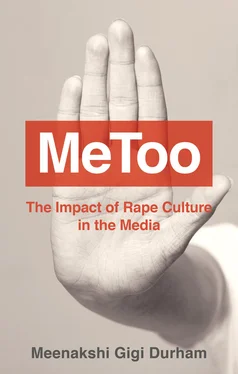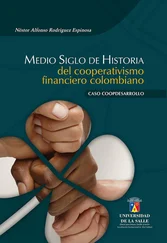ISBN-13: 978-1-5095-3519-4
ISBN-13: 978-1-5095-3520-0(pb)
A catalogue record for this book is available from the British Library.
by Fakenham Prepress Solutions, Fakenham, Norfolk NR21 8NL
The publisher has used its best endeavours to ensure that the URLs for external websites referred to in this book are correct and active at the time of going to press. However, the publisher has no responsibility for the websites and can make no guarantee that a site will remain live or that the content is or will remain appropriate.
Every effort has been made to trace all copyright holders, but if any have been overlooked the publisher will be pleased to include any necessary credits in any subsequent reprint or edition.
For further information on Polity, visit our website: politybooks.com
This book came to its conclusion in turbulent times, as a deadly virus wracked the globe and Black Lives Matter demonstrations called out the ongoing crisis of racial injustice. Writing was challenging, in part because of the emotional toll these events took, and in part because I couldn’t easily get to the library or to my office at the University of Iowa. So I wrote at home, in between checking news feeds, and I am eternally grateful to my family for understanding and support, as random stacks of books piled up everywhere and I huddled with my laptop behind closed doors. My heartfelt thanks go to my husband Frank, who (as he has done for years) mulled over ideas with me, read and edited draft chapters, brought me cups of coffee when my energy was flagging, and got me to take exercise breaks. My daughters Sonali and Maya inspire me every day with their commitment to feminism and racial and social justice. I’m also deeply grateful to the University of Iowa librarians, especially Tim Arnold and Donald Baxter, for helping me obtain the materials I needed even when campus was officially closed. The amazing colleagues and friends who have supported and encouraged me have my deepest gratitude: I feel lucky to be part of such a lively and collaborative community. Many thanks to Mary Savigar and Ellen MacDonald-Kramer at Polity Books for believing in this project and for their encouragement, knowledge, and patience.
Most of all I thank my mother, Jayalakshmi Venugopal, for her brilliance, sense of humor, and love. Her passing this year has left a chasm in the world.
In ancient Greece, Pandora’s box was not actually a box but a jar, or a clay pot with a lid that was kept in the kitchen, where the women were also kept. Maybe it contained evil—or maybe it just concealed it. Maybe Pandora let the evil out, or maybe she blew the lid off what was really going on back there, where nobody else could see it. Anyway, the truth got out, and all hell broke loose, leaving behind only hope.
Carina Chocano, “Plain Sight,” New York Times Magazine , November 26, 2017, p. 13
A feminist ear can be how you hear what is not being heard.
Sara Ahmed, Living a Feminist Life , 2016, p. 203.
The media are a linchpin in the contemporary feminist movement against sexual violence.
We are in a “MeToo 1moment”—or so the media tell us. The very term is a media goldmine: not only is it jauntily alliterative, but it seems to have an instantly recognizable meaning. It pops up in headlines and in TV news teasers whenever a famous man is accused of sexual abuse, assault, or harassment, which seems to happen on the hour somewhere in the world.
Although sexual misconduct in the workplace and elsewhere is not a new issue and feminist activism against sex assault has persevered for at least a century now, the intensity of the global upheavals of this MeToo moment marks a striking social shift. The scope and virality of MeToo/#MeToo have exceeded those of any previous online organizing effort around sexual violence. 2The movement is variously referred to as a “culture shock,” a “tsunami,” or an “explosion,” since its ripple effects are being experienced in life-changing ways at multiple levels across the world.
The media are in fact, quite literally, sites of sexual violence: for decades, sexual harassment and assault have been routinized and concealed in corporate media workplaces. Acts of rape have been committed in newsrooms, on film sets, in media executives’ hotel rooms. The strategies used by many media corporations to conceal, and thereby enable, serial sexual assaults show that sexual violence is systemic violence, embedded in the structures of workplaces and buttressed by other institutional mechanisms, such as legal processes and human resources (HR) policies. In the wake of #MeToo, it has become increasingly apparent that these mechanisms and structures are deeply entrenched in a variety of social institutions and in most countries and cultures. The media industries are not unique, but they have awakened a realization that workplaces harbor a rape culture—a culture that not only facilitates rape but, perhaps most damningly, silences its survivors. Media worksites, mediated images and messages, and media social networks all serve to illuminate the way sexual violence percolates throughout societies. The media’s relationship with rape culture is thus of vital contemporary importance.
This book centers on rape culture in the media, especially with regard to the silencing and the silence breaking of survivors of sexual violence, practices that have shaped rape culture in multiple and complex ways. This focus on silence as systemic, especially in the media, contributes new insights into our understanding of rape culture.
Silence has always haunted sexual violence. Terrorized, shamed, or discounted, survivors have had to harbor their sexual assaults as dark secrets, often coping with the trauma and the injury while they were bereft of support systems or resources. Media corporations such as Miramax and Fox News actively silenced and concealed the acts of sexual violence that occurred in their workplaces for decades. Yet the media—social media—were also key to the breaking of silence when #MeToo erupted in 2017; and the media are sites where many dimensions of rape culture have been exposed, through representation, discourse, and commentary.
Rape culture, as a concept, has become highly visible in this MeToo moment. It is a hotly contested term and idea, which refers basically to “a complex of beliefs that encourages male sexual aggression and supports violence against women,” leading to the acceptance of rape as a normal part of life. 3While this definition addresses the societal dynamics that embed rape in everyday life, it rests on a male–female gender binary that doesn’t capture the diversity and range of experiences of sexual violence. Statistically, perpetrators tend to be cisgender straight men, but sometimes people of other genders initiate sexual violence too, so that rape occurs across categories of race, class, gender, nation, sexual orientation, and other intersectional categories of identity.
Recognizing this, it becomes important to construe rape culture in terms of sexual power that has been historically entrenched and culturally validated: the kind of sexual power that tacitly condones rape as an explicitly sexual expression of dominance. Nor is “rape culture” limited to any legal definition of “rape,” as it encompasses a range of sexually aggressive behaviors that sustain sexual power relations and reinforce an individual’s sexual violability as a result of social classification.
Critics of the concept of rape culture reject it on the premise that the “developed” societies of the global North are relatively rape-free and penalize rape severely by comparison to the societies of the global South. These claims are disputable, both because rape is vastly underreported everywhere and because penalties vary, especially when social vectors such as race, class, and citizenship status are taken into account. As the second-wave feminist scholar Susan Griffin pointed out, “[t]he fact that rape is against the law should not be considered proof that rape is not in fact encouraged as part of our culture.” 4The concept of rape culture as a framework has been validated by the #MeToo hashtag and its aftermath: the millions of tweets and social media discourses swiftly exposed the pervasiveness of sexual violence in most societies. In doing so, they engaged with rape culture in myriad ways, at once recognizing, resisting, and reevaluating the concept from multiple perspectives.
Читать дальше












